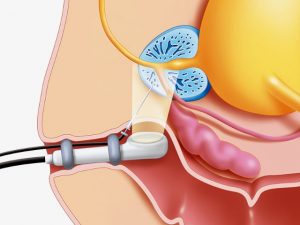Prostate Biopsy
Prostate Biopsy In Iran
Best prostate biopsy hospital in Iran
 More than 2500 Iranian and foreign patients are going under prostate biopsy hospital in Iran each year. prostate biopsy in Iran is on top of the middle-east regarding its skilled specialists and surgeons.
More than 2500 Iranian and foreign patients are going under prostate biopsy hospital in Iran each year. prostate biopsy in Iran is on top of the middle-east regarding its skilled specialists and surgeons.
- Treata Professional Hospital
- Gandi Hospital
- Moheb Mehr Hospital
prostate biopsy cost in Iran
There is a significant difference between the cost of prostate biopsy in Iran and other countries. The most important factors for the low price of it in Iran are:
- A large number of prostate biopsy hospitals in Iran.
- A large number of applicants for prostate biopsy in Iran.
prostate biopsy cost in Iran varies depending on the prostate biopsy and the hospital. An average cost of prostate biopsy in Iran is $
prostate biopsy cost in Iran in comparison with other countries
Best prostate biopsy surgeon in Iran
More than 24.000 urology surgeries are being performed each year in Iran. Experienced Iranian doctors with an excellent record are performing the operations. One of the most important factors for choosing a good surgeon for prostate biopsy in Iran is a doctor has done many prostate biopsies. You can find the best doctors for prostate biopsy in Iran on our website by following their experiences.
Why should you travel to Iran for a prostate biopsy?
Many patients travel to Iran for prostate biopsy. One of the reasons for this matter is Iranian specialists and surgeons who have high surgery success rates.
- Low cost of prostate biopsy in Iran
- Low cost of accommodation in Iran
- Well experienced doctors
- The high number of prostate biopsy in Iran
Prostate biopsy centres accordant with today's European standards are performing the highest quality operations in Iran. Another reason for prostate biopsy in Iran is its lower cost compared to other countries.
How long should I stay for prostate biopsy in Iran?
About Prostate Biopsy
The prostate gland is located between the bladder and the penis and in front of the rectum. The prostate gland secretes a fluid that protects and nourishes the sperm and helps produce semen. The prostate gland also prevents urine from being included during ejaculation. Prostate cancer is one of the most common types of cancer in men. Prostate cancer is usually a very slow-growing cancer, often causing no symptoms until it is in an advanced stage. If cancer is detected early, it can help prevent prostate cancer from entering the more advanced stages. A prostate biopsy is recommended if results from initial tests, such as a prostate-specific antigen (PSA) blood test or digital rectal exam, suggest that they may have prostate cancer.
Types of Prostate Biopsy
- Transrectal: The most common biopsy procedure, the doctor – with the guidance of an ultrasound device – inserts needles through the wall of the rectum and into the prostate to take six to twelve samples from different zones of the prostate.
- Transurethral: A lighted tiny lens is inserted into the urethra to allow the doctor to see the prostate and then uses a microscopic cutting loop to take samples of tissue.
- Transperineal: The doctor makes an incision in the perineum and inserts a needle to take tissue cores of the prostate.
Recommended for
Individuals who want to determine if they have prostate cancer
Before Prostate Biopsy
The surgeon takes a medical history and asks for a urine sample to test for urinary tract infection (UTI). And if a patient has UTI, then they should be treated with antibiotics before the procedure. Patients should avoid certain medicines include Aspirin, anti-inflammatory drugs and herbal supplement before the procedure. They should do a cleansing enema at home before the procedure.
During Prostate Biopsy
The patient should lie on the side knees pulled up to the chest. The area will be cleaned, and a gel is applied. A thin ultrasound probe is inserted into the rectum to create images of the prostate by using sound waves. The ultrasound images are used to: – identify the area that needs to be numbed with an injection to reduce discomfort associated with the biopsy – guide the prostate biopsy needle into place. The surgeon removes several samples from the prostate with a spring-loaded tool. Generally, 10 to 12 tissue samples are taken. The whole procedure takes about 10 minutes. Patients’ samples will be sent to a lab, where they’ll be looked at under a microscope. It takes three days or so to get results back.
Recovery
The surgeon will prescribe antibiotics to prevent infection after the procedure. It is recommended to do only light activities for 24 to 48 hours after a prostate biopsy. Patients may feel slight soreness and have some light bleeding from the rectum. They may have blood in urine or stools for a few days. There can also be blood in their semen, which can last for several weeks.
